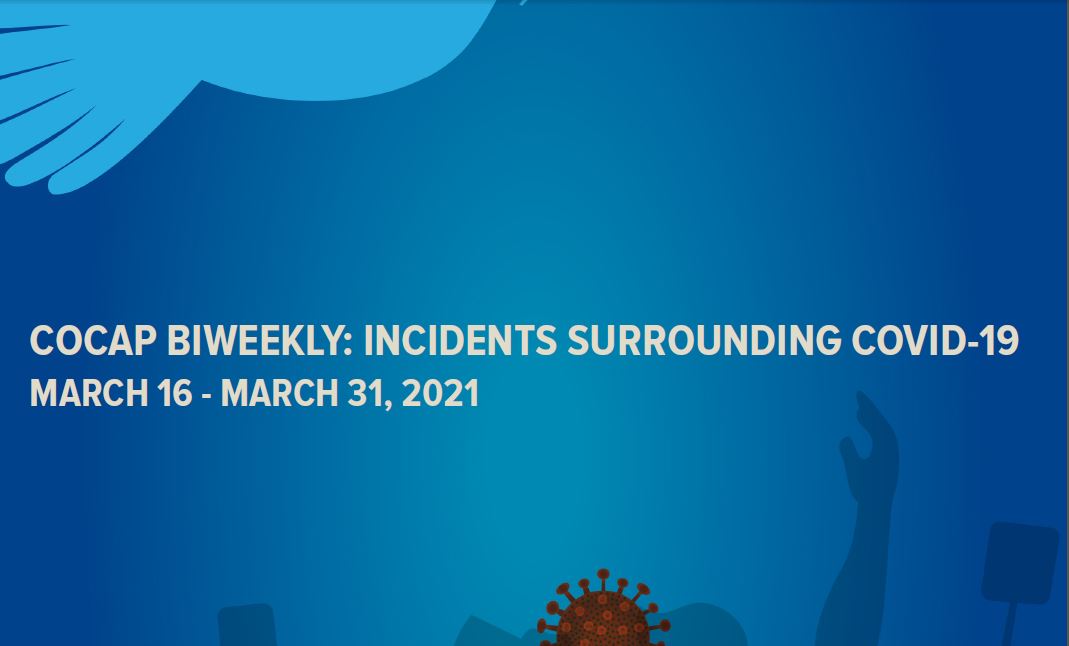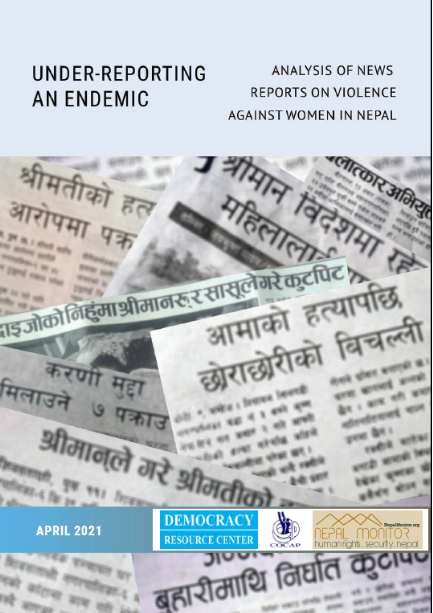Incident Reports
Chhaupadi-free drive ineffective: Menuka Dhungana's Oped on Chhaupadi
2018-12-22
Between 2011 and 2015, 31 of the 75 then Village Development Committees in Achham— a hill district in the Sudurpaschim Province— were declared Chhaupadi-free. The Chhaupadi-free campaign was launched by various NGOs and social organisations with the support of the government authorities.
But the reality is that girls and women in these villages still practice Chhaupadi— the deeply rooted Hindu tradition of banishing girls and women to secluded huts during menstruation and postpartum periods. In fact, they said they have to suffer even more after their villages were declared Chhaupadi-free.
“Our situation has further worsened. I vowed to disregard the menstrual exile when our village was declared Chhaupadi-free, but the society is still narrow-minded. It is difficult to end the superstitious beliefs entrenched in the psyche of the villagers,” said Nanda Saud of Balata village. “Most of the Chhaupadi sheds were destroyed in the village when it was declared a Chhaupadi-free area. Now, we are compelled to stay in tarpaulin tents and makeshift huts during our periods.”
In some villages, the locals are constructing community Chhaupadi sheds again, she added.
Similarly, the villagers take the tradition seriously and there are repercussions if one refuses to follow the norm.
For instance, Ujjali Devkota of Ghodasain has been ostracised for her stand against the inhumane practice. Devkota, who is in her early fifties, has been defying the practice since 2001, and even encourages her daughters and daughters-in-law to do the same. However, when her son died untimely a few years, the villagers claimed that the incident occurred because she stayed at home during her menstruation.
“I lost my son and the villagers blamed me for his death,” Devkota said. “Now, the villagers blame me whenever anyone falls sick and they socially outcast me.”
Meanwhile, rights activists and campaigners fighting to end the age-old practice said the villages were declared Chhaupadi-free without an effective implementation mechanism and necessary groundwork.
“Just declaring the villages as Chhaupadi-free does not change anything if the traditional mindset of villagers remain unchanged,” said Hastana Budha, a social campaigner.
The new Civil and Criminal Codes enforced in August has criminalised Chhaupadi in Nepal. According to the law, one who is found forcing anyone to practice the custom will be punished accordingly.
The law, however, has not been implemented effectively so far due to a lack of awareness among the people and an ineffective monitoring mechanism.
Laxmi Saud, deputy chief of Dhakari Rural Municipality, said, “How can Chhaupadi end in the villages when even the people’s representatives cannot defy the practice?”
http://kathmandupost.ekantipur.com/news/2018-12-22/chhaupadi-free-drive-ineffective.html
Related Reports
GBV / Siraha
Complaint lodged against a 30-year-old man on the charge of raping a 13-year-old teenage girl in Siraha
GBV / Okhaldhunga
52-year-old man arrested on the charge of sexually assaulting a 16-year-old teen girl in Okhaldhunga
GBV / Humla
Teen boy arrested on the charge of raping a 40-year-old woman in Humla
GBV / Bhaktapur
25-year-old man arrested on the charge of harassing girl over social media
Related Trend Analysis
Analysis

THE NEPAL PEACE MONITOR ANNUAL REVIEW: 2020
October 25, 2021
Human Trafficking / LGBT+ Rights / GBV / Political / Children’s Rights / Senior Citizens’ Rights / HRD Issues / Human Rights / Interpersonal Violence / Governance / Covid-19 / Civic-Space / PwD
Analysis

COCAP BIWEEKLY: INCIDENTS SURROUNDING COVID-19 MARCH 1 - 15, 2021
March 25, 2021
GBV / Governance / Covid-19
_001.png)




